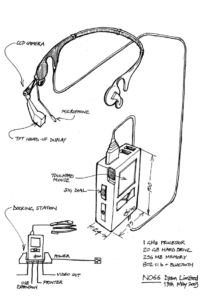Back in 2014/2015, I wondered whether it would make sense for Google to acquire Dyson.
Growth of Alphabet/Google hardware presence
In order to keep their advantage in the search and data sphere, Google (now Alphabet) ramped up their presence in lots of emerging hardware spaces via acquisitions such as Motorola, Boston Dynamics and Nest Labs. Also, Google has developed their own technology innovations at Google X (now simply X), such as the world-leading autonomous vehicle company, Waymo.
In order to fully commercialise such acquisitions and innovations, Google needed to have access to an abundance of world-class hardware product development and marketing experience.
Google made a step towards this in 2014 when they acqui-hired a design firm based in California called Gecko Design. However, I believed Gecko Design was not big enough to fill this void alone.
This left me wondering whether Dyson would be a good fit to help satisfy this need for design engineering firepower.
Dyson’s common interests with Google

Dyson was rumoured to be working on an electric car after it acquired battery company Sakti3 (which has now been publicly confirmed) and also invested £5m with my alma mater, Imperial College, to develop next-generation robots, resulting in the Dyson Robotics Lab.
Given Alphabet’s world-leading autonomous vehicle project, Waymo, and it’s previous interest in robots, I thought that an acquisition of Dyson would give Alphabet/Google a huge advantage with its massive team of 4,800 design engineers.
Dyson and Alphabet have other visions of the future in common. One notable example is Halo (see right), Dyson’s previous prototype of a Google Glass-type device that they built 10 years before Google launched it!
Would Sir James Dyson sell?
As of 2018, a tie-up between the two companies has not yet emerged. In many ways it is unsurprising, as Sir James and his family appear to own 100% of Dyson, so why give up control? (On that topic, there is a great interview with Sir James on NPR’s How I Built This podcast about how he grew his business which explains that surprising fact).
Also, Sir James is a vocal advocate of keeping engineers in Britain and growing British talent to boost industry and our economy.
His leadership on this issue includes launching his own university with a £15m investment, called the Dyson Institute of Engineering and Technology, and his £12m donation to Imperial College to launch the Dyson School of Design Engineering (as well as the previously mentioned Dyson Robotics Lab).
In short, I’m not going to hold my breath for this one. However, it will be fascinating to see how Google and Dyson both fare in the autonomous and electric vehicle markets. Perhaps future collaboration or a joint venture could be on the cards?